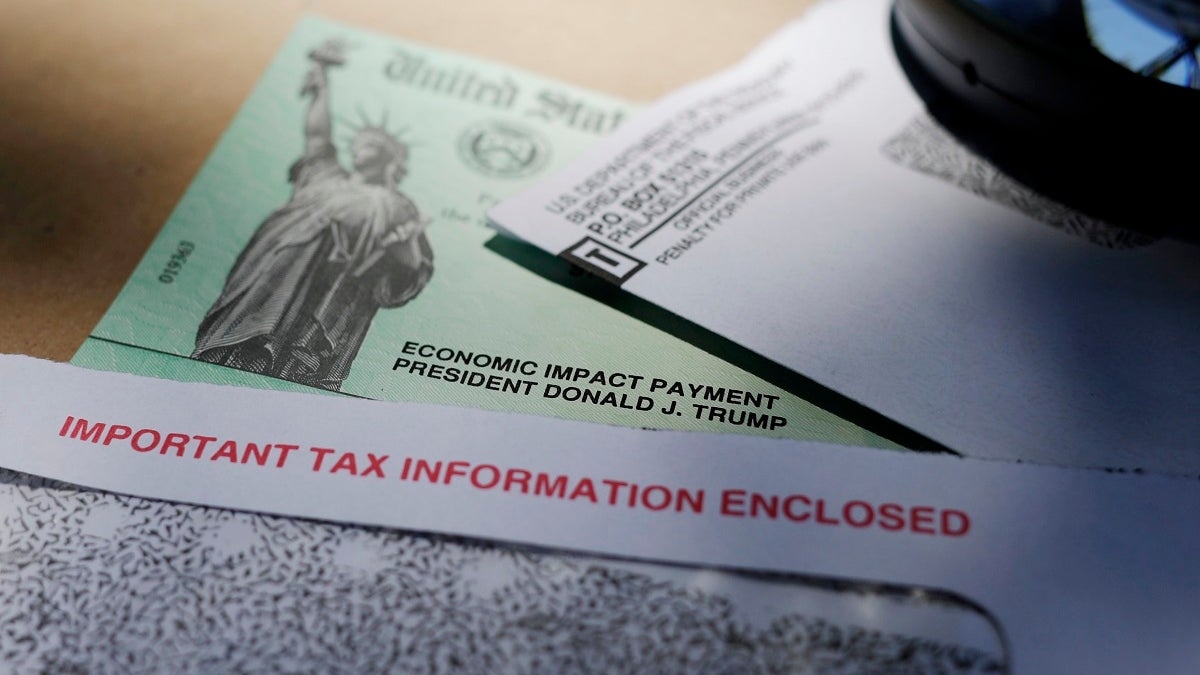Senate Republicans say House's $3T coronavirus stimulus bill is dead on arrival
Senate Republicans shift their focus to reopening the economy; Chad Pergram reports from Capitol Hill with an update.
Get all the latest news on coronavirus and more delivered daily to your inbox. Sign up here.
The Federal Trade Commission has warned that nursing homes in Iowa, as well as other states, have been coercing residents on Medicaid to hand over their coronavirus stimulus checks.
“We’ve been hearing that some facilities are trying to take the stimulus payments intended for their residents on Medicaid," FTC Elder Justice Coordinator Lois Greisman said. "Then they’re requiring those people to sign over those funds to the facility.”
“Why? Well, they’re claiming that, because the person is on Medicaid, the facility gets to keep the stimulus payment,” she continued in her consumer information blog post published May 15.
CLICK HERE FOR FULL CORONAVIRUS COVERAGE

In this April 23, 2020, photo, President Donald Trump's name is seen on a stimulus check issued by the IRS to help combat the adverse economic effects of the COVID-19 outbreak, in San Antonio. (AP Photo/Eric Gay)
“This is not just a horror story making the rounds. These are actual reports that our friends in the Iowa Attorney General’s Office have been getting — and handling. Other states have seen the same,” she said.
According to the CARES Act, the economic impact payments are tax credits, and, therefore under current tax law, don’t count as “resources” for federal benefits programs, like Medicaid, Greisman said.
“When Congress calls these payments 'tax credits' in the CARES Act, that means the government can’t seize them. Which means nursing homes and assisted living facilities can’t take that money from their residents just because they’re on Medicaid,” she wrote.
Family members whose love ones may have already been swindled out of their stimulus checks are urged to first report the matter to their state attorney general’s office before filling out an FTC online complaint form.
“If a loved one lives in a nursing facility and you’re not sure what happened to their payment, talk with them soon,” Greisman wrote. “And consider having a chat with the facility’s management to make sure they know which side of the law to be on.”
This comes as nursing homes and extended care facilities across the country have suffered outbreaks and have barred in-person visitations from family members to prevent further contagion. Their elderly residents remain the most at risk of severe complications or death from COVID-19.
CLICK HERE TO GET THE FOX NEWS APP
Meanwhile, the FBI has been warning against stimulus check fraud schemes since late March. After President Trump signed the federal stimulus package, authorities warned Americans awaiting their checks not to fall for robocalls and text message scams.
Some text messages included malware links, which infiltrated personal devices to steal identities and other banking information. Callers, meanwhile, posed as government officials and asked for Social Security information with the false promise of sending benefit funds.









































